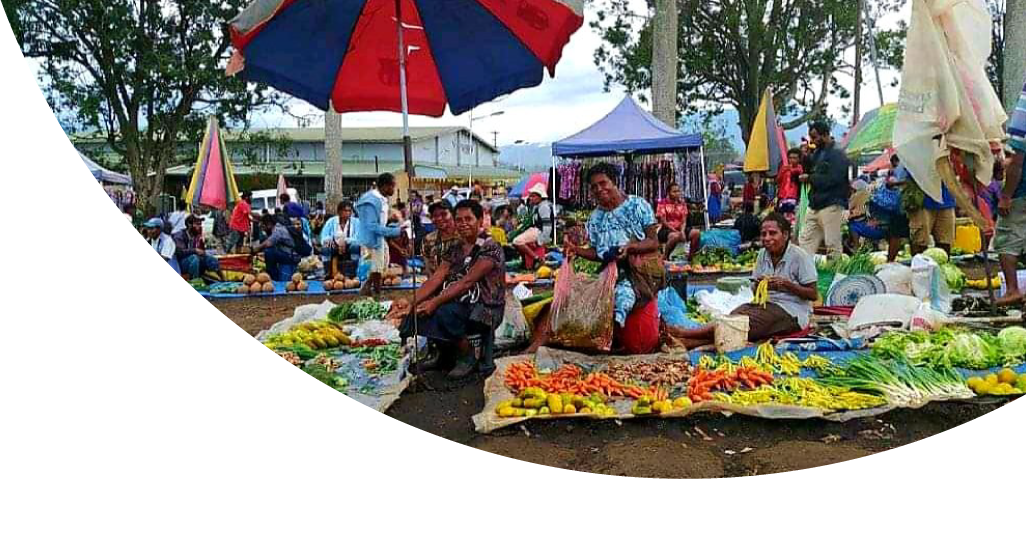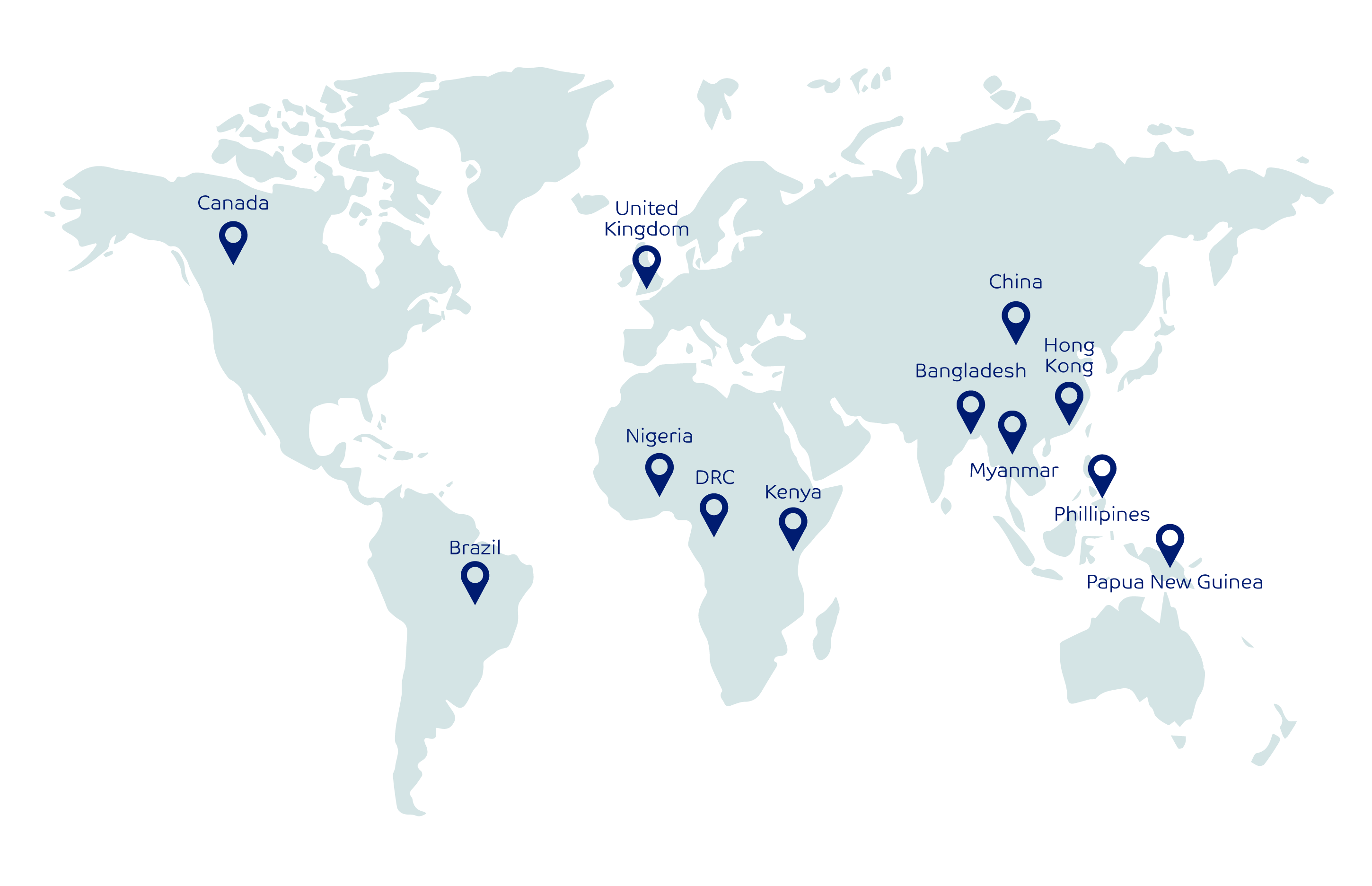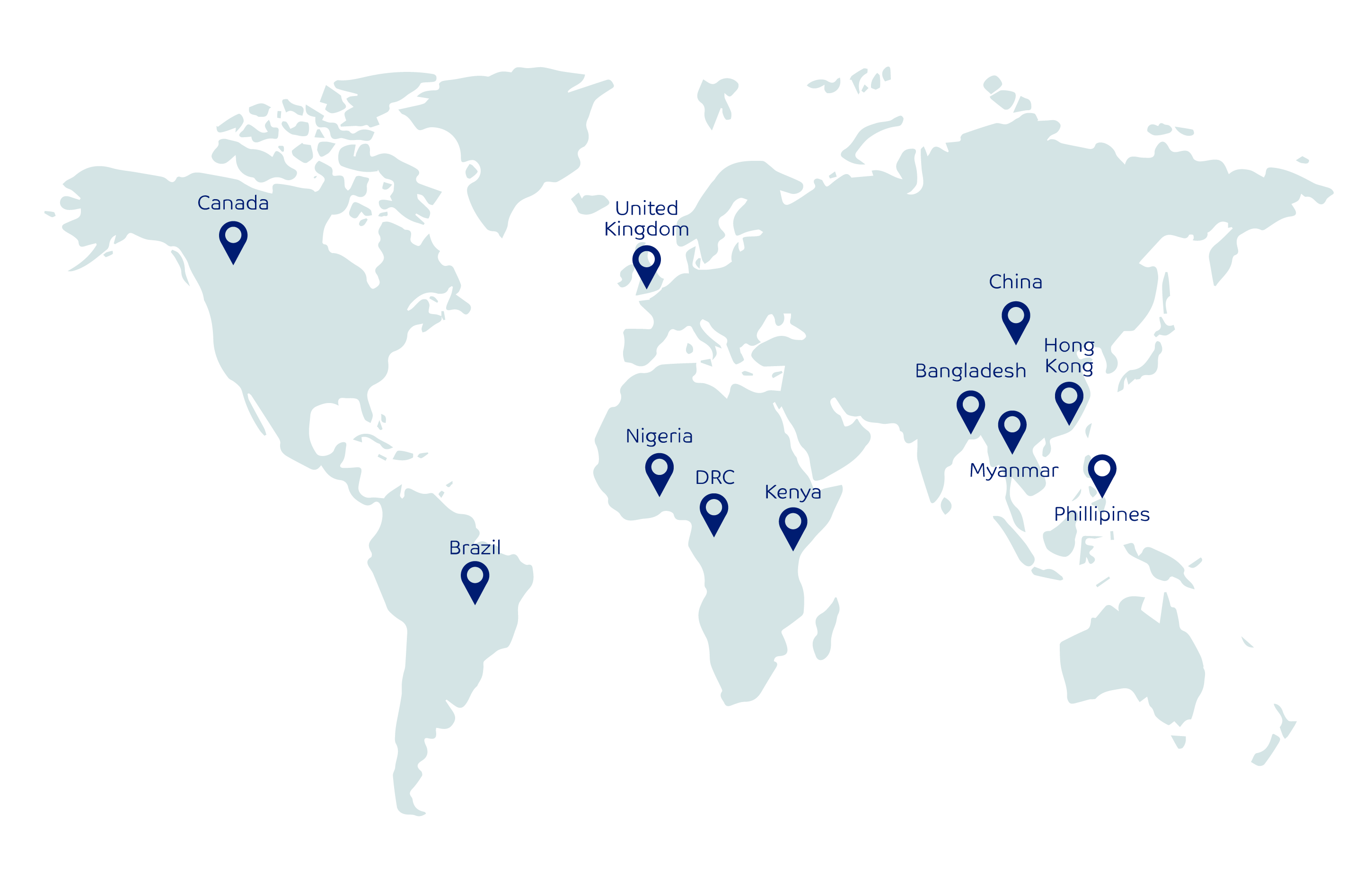Papua New Guinea
The threat of COVID-19 in Papua New Guinea (PNG) is still present. From late March 2021, cases began to surge in across the country. In early April the number of people who tested positive doubled in numbers. Hospital admissions are overwhelming the system. Since the February 2020, there have 16,398 cases, 164 deaths and 15,711 recoveries from the virus in PNG. At as at early June 2021 there are 523 active cases.
There are multiple challenges arising due to the pandemic. Misinformation is circulating in communities. There are rumours that the virus is a government conspiracy and locals are immune to catching it. Health experts are under immense pressure to test, trace and isolate: on average there is approximately one doctor to 14,000 citizens. There are also economic concerns resulting from the impact of travel bans for over 1500 workers due to the pandemic. Fly-in-fly-out workers (FIFO) in the PNGs mining industry are no longer able to travel under restrictions announced in March 2021.
The national capital district (NCD) has the highest prevalence of cases (5071 cases) followed by the Western province (2,385 cases). Collectively the provinces of Morobe, East New Britain, West New Britain, and the Western Highlands make up the majority (4,235 cases) of the remaining areas of COVID-19 outbreaks. The onset and pace of COVID-19 outbreak, the lockdowns, and the restrictions, placed economic pressure on women farmers and women food producers during the first year of the COVID-19 crisis.
While some progress has been made in gender equality, significant inequality for women and girls remains persistent. The unequal access to productive resources (including land, service inputs, finance, training and information), markets and institutions, continues to hamper the realisation of women’s human and productive potential. Covid-19, and its gendered impacts, is important to consider because of the intergenerational harm the occurs within populations, especially populations that may have been on the poverty line prior to the outbreak of COVID-19.
The collaborative study (with partners in Madang, Alotau, Kokopo, and Mt Hagen) aims to develop an evidence-based approach that identifies the specific risk of economic hardship and food insecurity that women have experienced during the first year of the COVID-19 pandemic. The second stage will listen to women working in small-scale agricultural and food sectors to hear what they identify as necessary to secure food and income.
This pilot country study is being led by Griffith University, and funded by the Australian Centre for International Agriculture Research (ACIAR) and encompasses a mixed-method research design through surveys and ‘deep dive’ field work consultations. This research project will collaborate with the Gender and Covid-19 Working Group to produce analysis that compares the gendered impacts of the Covid-19 pandemic, develop reliable estimates of food insecurity and, identify necessary steps to develop gender responsive economic recovery packages.
Posts on Papua New Guinea

Papua New Guinea
The threat of COVID-19 in Papua New Guinea (PNG) is still present. From late March 2021, cases began to surge in across the country. In early April the number of people who tested positive doubled in numbers. Hospital admissions are overwhelming the system. Since the February 2020, there have 16,398 cases, 164 deaths and 15,711 recoveries from the virus in PNG. At as at early June 2021 there are 523 active cases.
There are multiple challenges arising due to the pandemic. Misinformation is circulating in communities. There are rumours that the virus is a government conspiracy and locals are immune to catching it. Health experts are under immense pressure to test, trace and isolate: on average there is approximately one doctor to 14,000 citizens. There are also economic concerns resulting from the impact of travel bans for over 1500 workers due to the pandemic. Fly-in-fly-out workers (FIFO) in the PNGs mining industry are no longer able to travel under restrictions announced in March 2021.
The national capital district (NCD) has the highest prevalence of cases (5071 cases) followed by the Western province (2,385 cases). Collectively the provinces of Morobe, East New Britain, West New Britain, and the Western Highlands make up the majority (4,235 cases) of the remaining areas of COVID-19 outbreaks. The onset and pace of COVID-19 outbreak, the lockdowns, and the restrictions, placed economic pressure on women farmers and women food producers during the first year of the COVID-19 crisis.
While some progress has been made in gender equality, significant inequality for women and girls remains persistent. The unequal access to productive resources (including land, service inputs, finance, training and information), markets and institutions, continues to hamper the realisation of women’s human and productive potential. Covid-19, and its gendered impacts, is important to consider because of the intergenerational harm the occurs within populations, especially populations that may have been on the poverty line prior to the outbreak of COVID-19.
The collaborative study (with partners in Madang, Alotau, Kokopo, and Mt Hagen) aims to develop an evidence-based approach that identifies the specific risk of economic hardship and food insecurity that women have experienced during the first year of the COVID-19 pandemic. The second stage will listen to women working in small-scale agricultural and food sectors to hear what they identify as necessary to secure food and income.
This pilot country study is being led by Griffith University, and funded by the Australian Centre for International Agriculture Research (ACIAR) and encompasses a mixed-method research design through surveys and ‘deep dive’ field work consultations. This research project will collaborate with the Gender and Covid-19 Working Group to produce analysis that compares the gendered impacts of the Covid-19 pandemic, develop reliable estimates of food insecurity and, identify necessary steps to develop gender responsive economic recovery packages.








